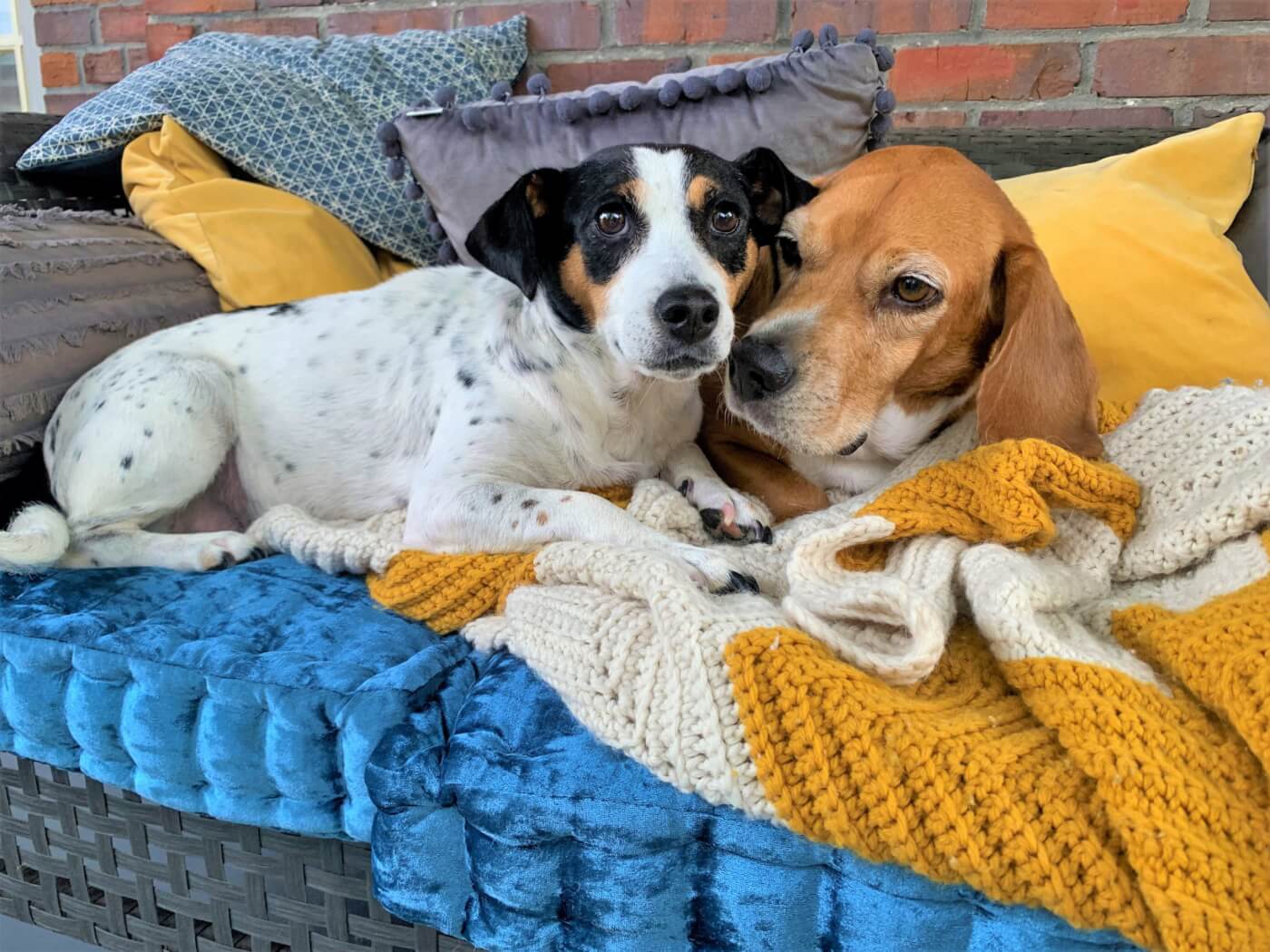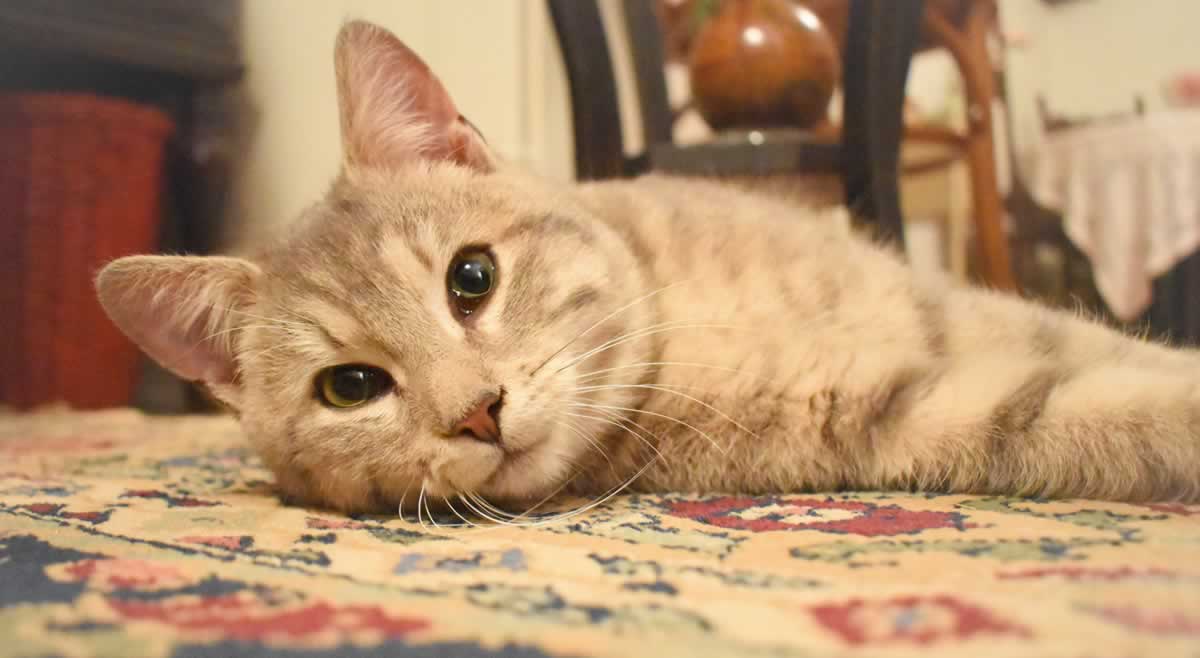Why You Should Never ‘Like’ or Share Videos of Animals Being Teased on Social Media
Just as we would never “like” or share content on social media that makes fun of humans for their ethnicity, age, race, or gender, we should never support posts, videos, or tweets that involve teasing, scaring, or demeaning other animals. We should always examine such content critically and think about it from the animals’ perspective. When we start to do this, we often realize that there’s nothing funny about it.
Animal companions depend on their human guardians for everything—food, water, shelter, love, and respect. It’s speciesist to mock them, scare them, and possibly even injure them for the sake of earning online brownie points. Even if you would never make one of these videos yourself, you shouldn’t “like” them or share them, either. If you come across a post in which animals are teased, speak out: Leave feedback and help inform others about this issue.
Watch the video below to learn why it’s wrong to create, “like,” or share videos in which animals are teased:
Here’s What’s Wrong With Putting Costumes on Animals
Costumes can be dangerous to animals if they impair their ability to see, move, or breathe. Animals can choke or strangle if they attempt to eat small parts of costumes or become entangled in them, and they can overheat if a costume is left on for a long period of time.
Animals forced into a costume don’t understand what’s going on, and they probably find the outfits uncomfortable, cumbersome, and even frightening. Since many humans have a hard time reading animals’ body language, they may not even notice when cats or dogs in costumes are actually in distress.
Dressing animals up in joke or novelty costumes can also lead humans to have negative, disrespectful attitudes about them, and it sends the harmful message that those animals are here merely for human amusement. It leads viewers to see them as playthings, not as living, feeling beings with needs and desires of their own.
‘Pet-Shaming’ Is Another Form of Entertainment at Animals’ Expense
Animals give us all their love, and what do some guardians give them in return? They “shame” them on social media for doing something they don’t usually understand they aren’t permitted to do, all for a few “likes.”
Often, the animals being shamed were just reacting to something that their humans did or failed to do. Cats rightfully refuse to step into litterboxes that haven’t been cleaned. Dogs chew on things when they’re teething or left at home for long, lonely hours with nothing to do day after day. And animals get into tempting foods that have been placed unattended within their reach.
Scaring Cats With Cucumbers and Other Objects
You’ve likely seen videos of cats leaping into the air after being deliberately frightened by something.
It’s obvious even to the people posting these videos that the cats are scared. That’s the whole point of them, and that’s reason enough not to “like” or share them. Placing unfamiliar objects behind cats triggers their natural startle reflex. Cats associate the area where they eat with safety, and scaring them there with objects that they mistake for threats can cause particularly severe reactions.
‘Pet Fail’ and Fake Death Videos Can Cause Long-Term Harm
Mean-spirited “pet fail” videos feature actions such as cats falling into bathtubs or off tables and dogs getting their heads stuck inside bags of food. Some of these videos even show animals dangerously crashing into glass doors or through glass tables. No one should be put in danger or caused distress for the sake of a cheap laugh at their expense. Besides the obvious risk of physical injury that these pranks can cause, there’s reason to worry about potential long-term psychological trauma to the animals.
In some videos in which animals are teased, humans pretend to die in front of their dogs, while their dogs howl in distress and nudge and lick their unresponsive owners, frantically trying to revive them. No one would find it acceptable for parents to pretend to die in front of their children. It’s no more acceptable to do this in front of dogs—who form deep bonds with their humans, consider us to be members of their family, and, yes, grieve when loved ones die. Imagine how you would feel if someone you love collapsed in front of you and couldn’t be revived. That’s how these dogs feel.
When people deliberately orchestrate stunts that frighten or may even injure their animals, the bond of trust can be broken. Animals may become fearful in what they previously perceived to be a safe environment, resulting in aberrant types of behavior, such as cats who constantly hide or dogs who are constantly on alert and easily startled. If an animal’s anxiety is severe enough, they may even suffer from physical ailments related to stress.
Never Post, ‘Like,’ or Share Videos in Which Animals Are Teased
Even small acts, such as commenting on a post or sending a video to a friend, can influence how many overall views something receives. The way you interact with this type of online content can also shape the opinions of others about animals, for better or for worse.
Show love to social media posts and videos that truly respect and uplift other animals. And always leave a comment explaining why it’s wrong to tease animals when you see a video in which they’re being intentionally scared, shamed, or humiliated.



